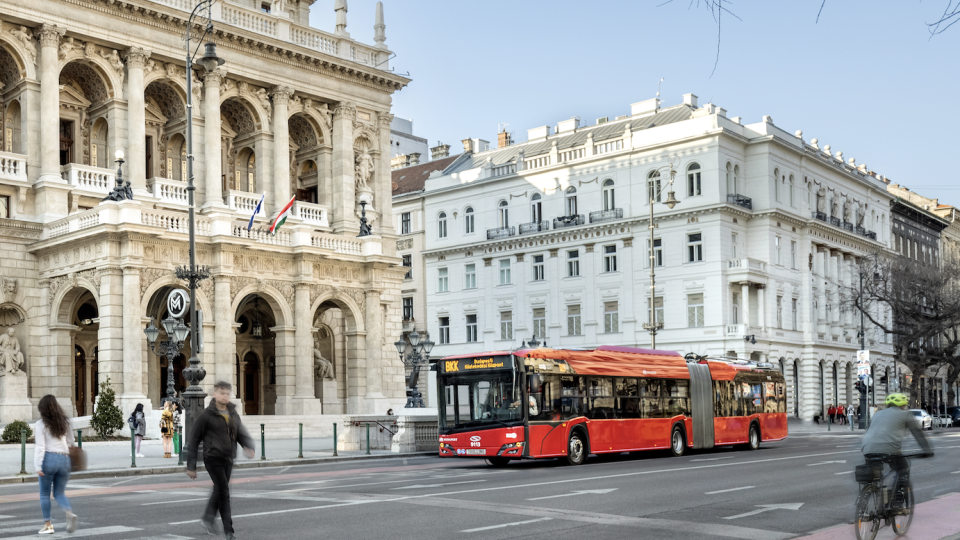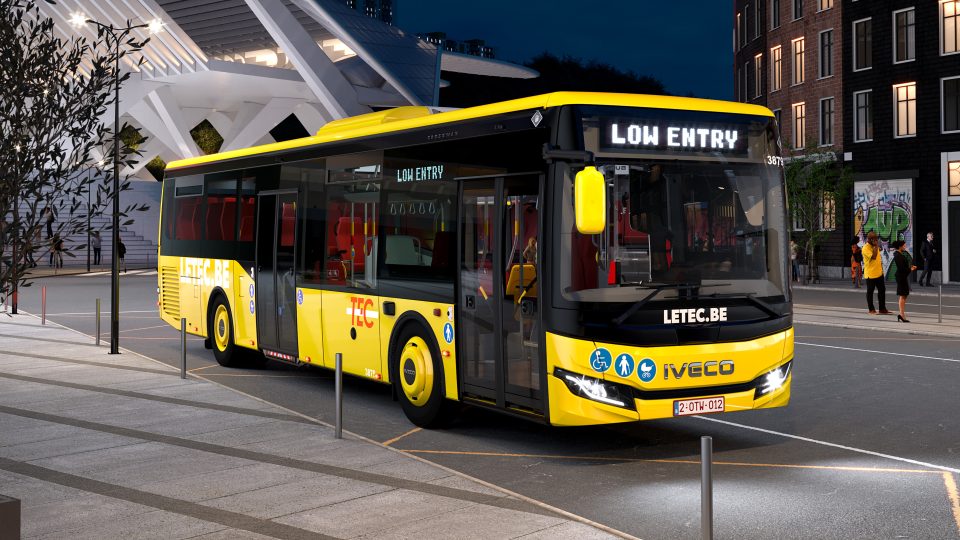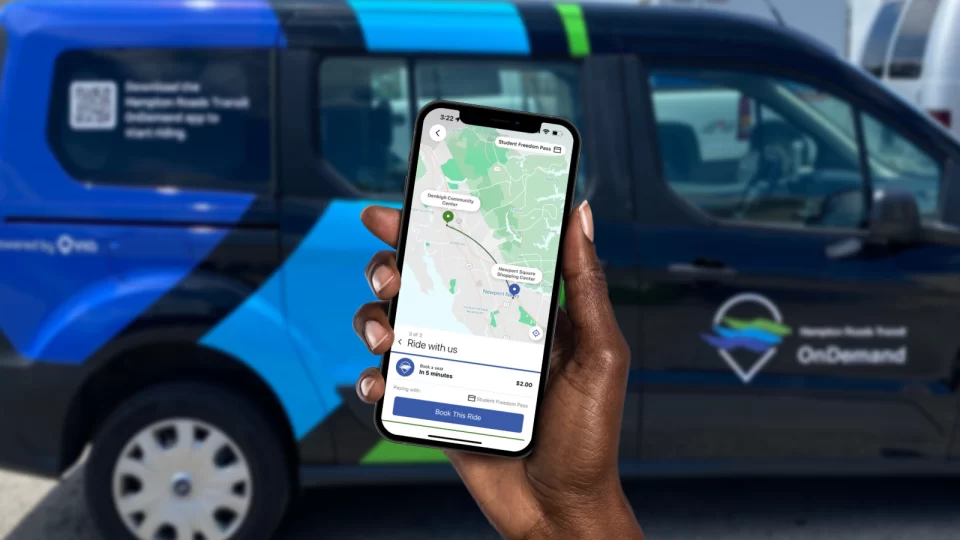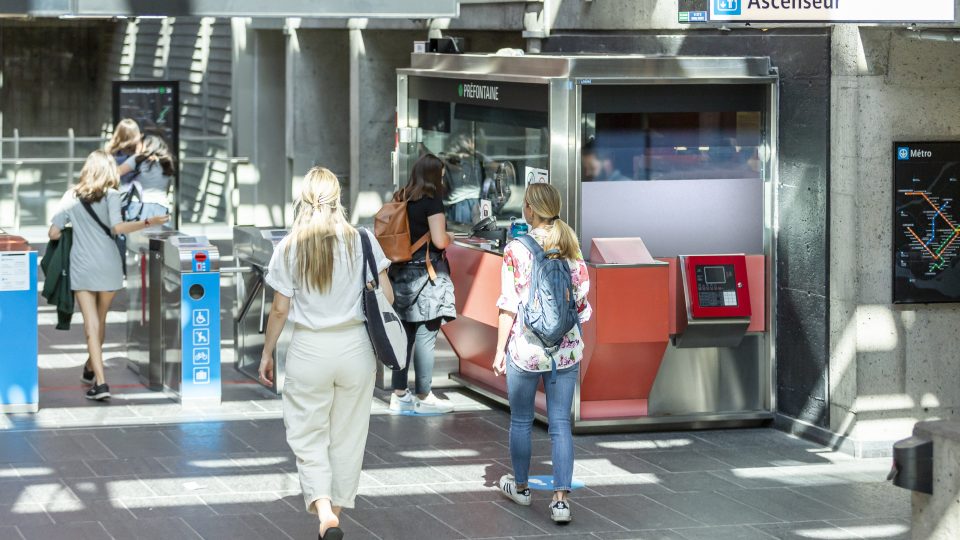Solaris 2019, the biggest ever sales volume. 500 e-buses to be supplied this year
2019 for Solaris has been a record year. A sum up: 1,487 vehicles sold, revenues up at 600 million euros with a growth by 40 per cent. What is more, over 500 e-buses have ben commissioned to the Polish manufacturer and are expected to delivered in 2020, a figure that allow the manufacturer to claim the […]
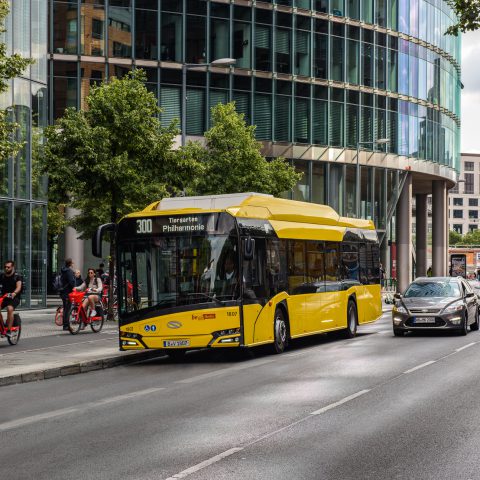
2019 for Solaris has been a record year. A sum up: 1,487 vehicles sold, revenues up at 600 million euros with a growth by 40 per cent. What is more, over 500 e-buses have ben commissioned to the Polish manufacturer and are expected to delivered in 2020, a figure that allow the manufacturer to claim the title of European leader of electromobility in terms of orders (with regards to registrations, in 2019 VDL was heading the chart with a market share of 23 per cent).
[source of the charts is Solaris Bus & Coach]
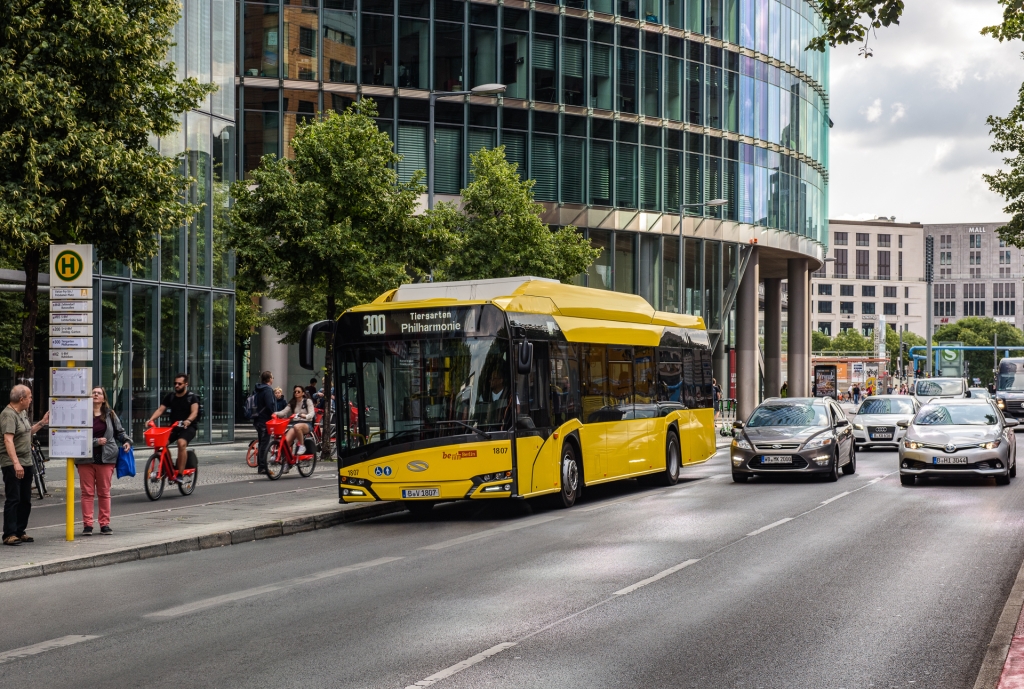
40 per cent of the production has alternative drive
Solaris announced that in 2019 it has achieved its biggest ever sales volume. All in all, the manufacturer has supplied 1,487 vehicles (a record: the previous best result occurred in 2017 and was by nearly 100 buses lower). Furthermore, Solaris saw record sales revenues of PLN 2.6 billion in 2019 (some 604 million euros). This represents a climb by nearly 40% year-on-year, the manufacturer highlights. For 2020, the firm is setting itself ambitious sales targets: Solaris points out that this year will deliver over 500 electric buses.
Currently, products of Solaris can be found in 32 countries, in over 750 cities. In total, the manufacturer has supplied nearly 19,000 vehicles to its customer so far. In 2019, the biggest sales markets of Solaris were Poland, Germany, Belgium, Lithuania and Italy.
The Polish manufacturer, taken over by CAF group in 2018, is quickly refocusing the organization of production and after-sales servicing towards vehicles with alternative, low or zero-emission propulsions. In 2018, hybrid and electric buses as well as trolleybuses constituted in total 29% of all vehicles sold. Meanwhile, in 2019, their share in sales increased by 11 percentage points to 40%.
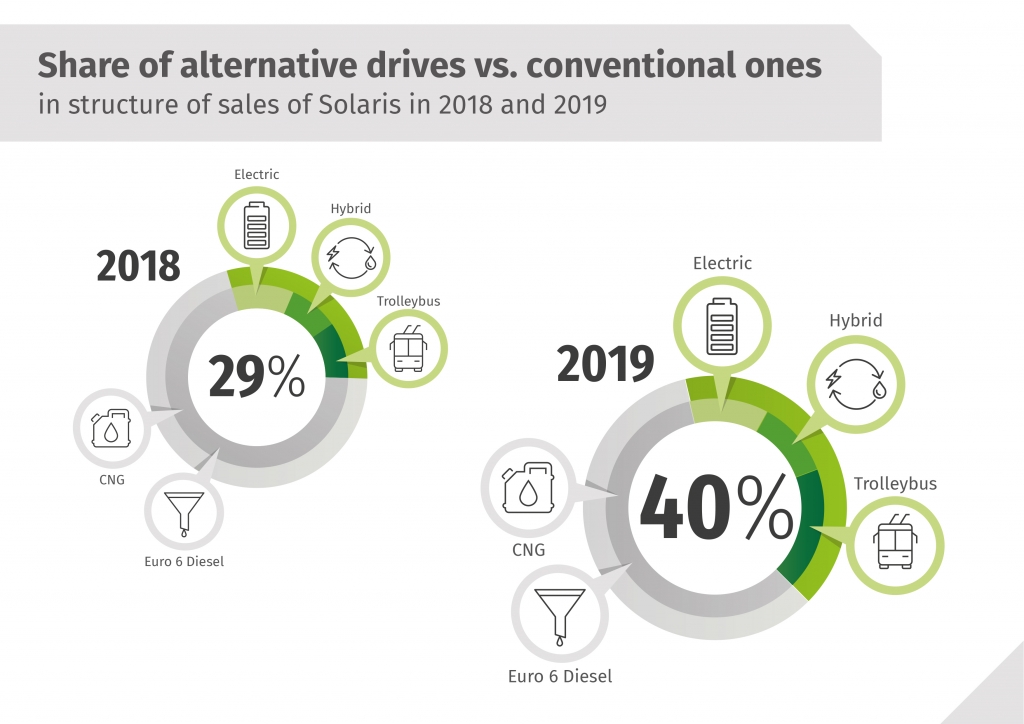
162 battery-electric buses supplied in 2019
Solaris highlights that the number of sold and contracted electric buses made by the company has been growing dynamically for a few years now. In 2019, the manufacturer has supplied in total 162 battery-electric buses, which marks a rise by 51% versus 2018.
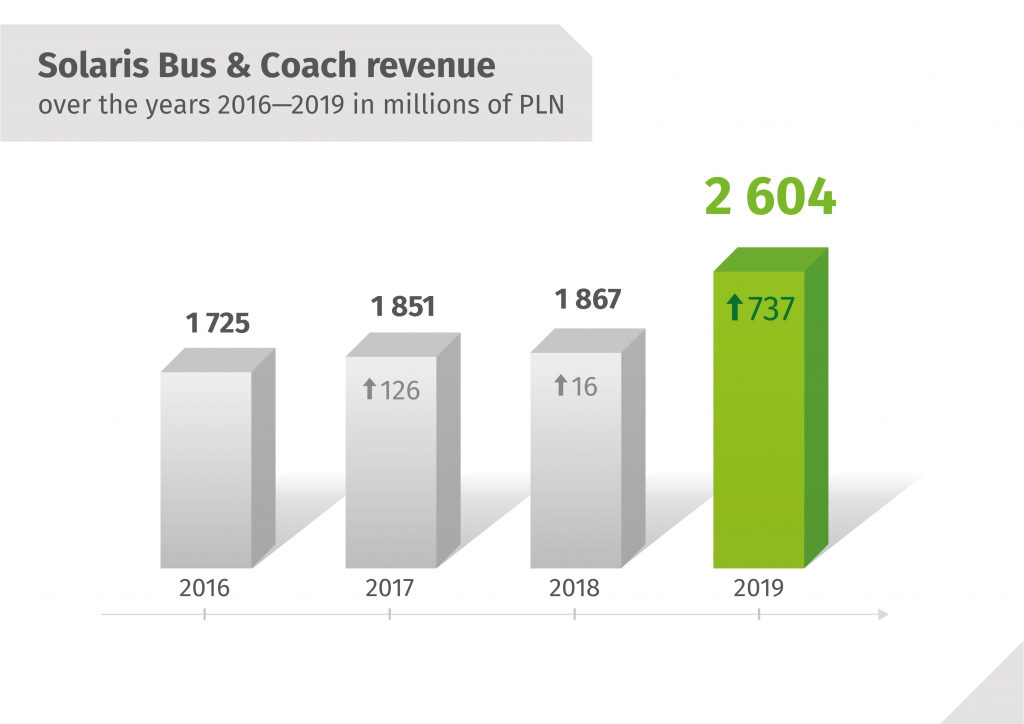
Based on the orders already secured, according to Solaris it is already possible to assume sales of battery buses of Solaris at a level of at least 500 units in 2020. The contracts due to be performed this year include among others the mega order for 130 articulated Solaris Urbino 18 for operator MZA in Warsaw, or the framework agreement for the supply of 250 Solaris Urbino 12 electric buses for Milanese operator ATM.
Compared to 2017, this represents an over eightfold increase of orders secured for electric buses.
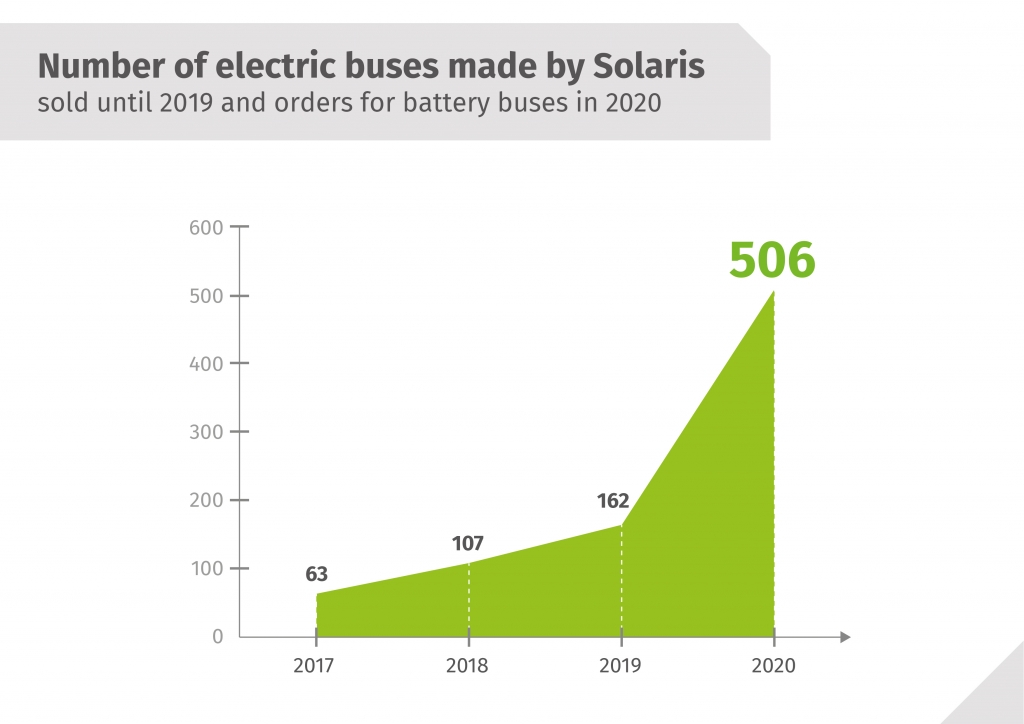
E-bus orders + 78 per cent from 2018 and 2019
Solaris highlights in a press release that «The trend of a growing share of low or zero-emission drive vehicles in the company’s sales and production structure will certainly continue in 2020. It is also consistent with the trends of the whole EU and EFTA market which is the chief area of commercial activity for Solaris. For a few years now, these states have seen an unusually dynamic climb of demand for low and zero-emission vehicles in public transport. This is also evident in the number of battery buses ordered in EU and EFTA states in 2018 and 2019. When comparing the number of battery buses commissioned year-on-year (2018 – 1313 units / 2019 – 2341 units) we see that this segment has recorded a 78% surge. Solaris is one of the leaders of this transition of the market towards e-mobility. Company was of the first movers and promotors of e-bus technology and continues its leading role for many years now».
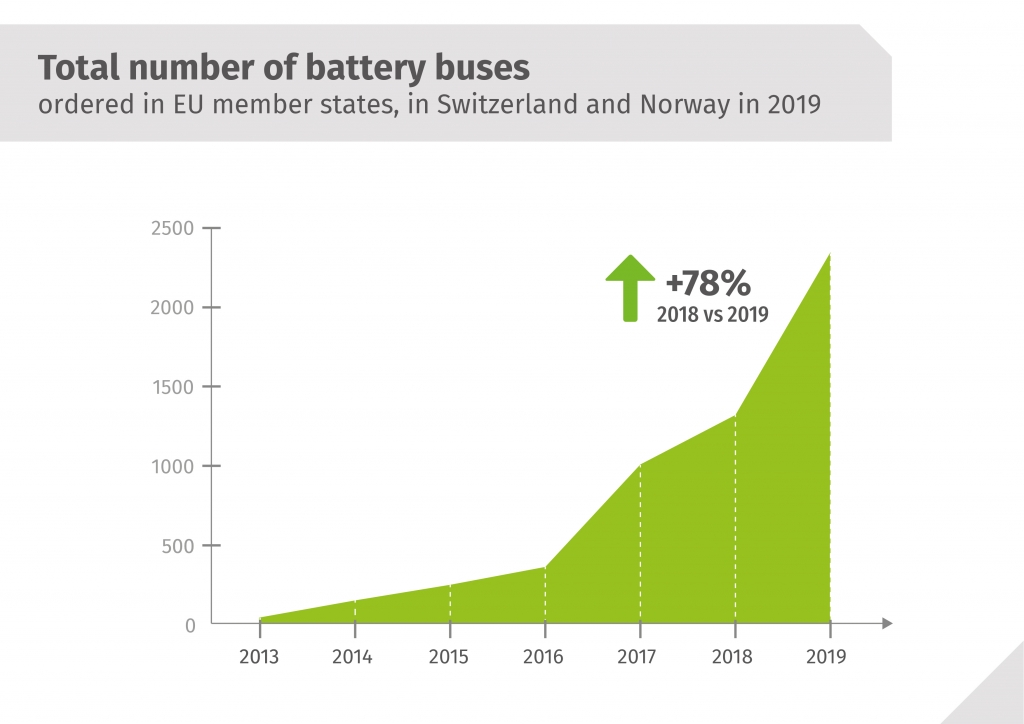
Solaris ready to unveil the 15-meter electric bus
In 2020, Solaris is going to present its latest offer in the electric bus segment. This will be the low-entry Solaris Urbino 15 LE electric, as announced in early 2020. The tri-axle bus is built mainly with customers of the Scandinavian market in mind. The vehicle will be available both as a typical city bus (class I) and also as an intercity bus (class II).
The Solaris Urbino 15 LE will be offered either with two or with three doors (2-2-0 or 2-2-1 layout), and it will be able to carry up to seated 55 passengers. Energy will be stored in Solaris High Energy+ batteries of the latest generation, boasting extremely high energy density and a capacity that will ensure an adequate travel distance both on city and on intercity routes. Two battery charging modes will be possible, depending on the users’ preferences, involving either a plug-in charger or a bus roof-mounted pantograph. Over the next weeks, the company will finish the design stage regarding the new vehicle and it will launch production of two pre-series buses. One ought to highlight at this point, that even now operators from one Scandinavian country have confirmed their interest in testing the vehicles in real road conditions.
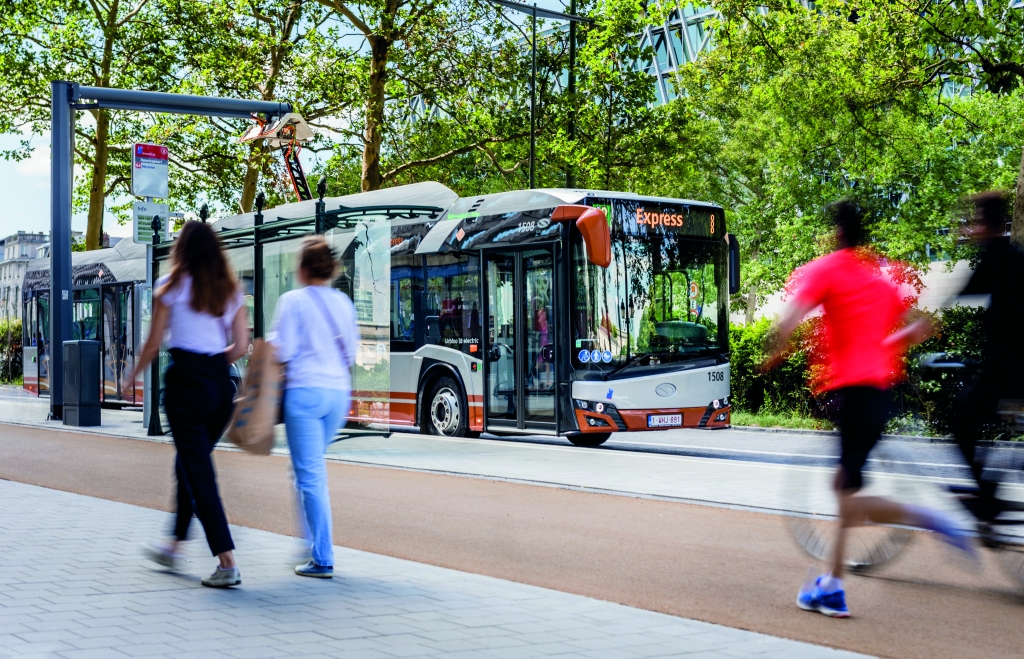
Javier Calleja: 500 e-buses to be supplied in 2020
“2019 was a record year for Solaris in many respects. What we have achieved thanks to our employees and thanks to the trust our customers put in us is fantastic. This year, we will face new challenges, related above all to the continuous dynamic development of electromobility. We plan further increases of sales and output. In 2020, we assume the supply of over 500 electric buses. Of course, this entails further investments and the optimisation of servicing processes and structures, in order to ensure the highest possible service quality for all our clients from the moment of vehicle delivery, throughout the whole service live of the vehicle,” said Javier Calleja, CEO of Solaris Bus & Coach S.A.




